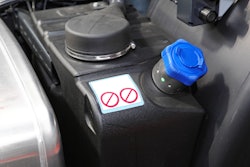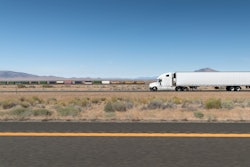No state bans all cellphone use for all drivers, thought most have at least banned text messaging, according to the Governors Highway Safety Association.
Just like speed limit signs and seatbelts, such laws are often ignored, but some states are cracking down even more on cellphone use, and the trucking industry, I’m sure, is glad to hear it as 79% of truck drivers see unsafe driving by passenger vehicles on a very regular basis compared to 42% having observed unsafe driving from fellow truckers, based on data from a survey by insurance company Cover Whale.
At the beginning of January, Tennessee enacted the Eddie Conrad Act, which increases the number of points charged for a distracted driving citation. Despite having a distracted driving law in place already, there's a crash involving a distracted driver every 23 minutes in Tennessee, according to Tennessee Highway Patrol data.
Fatal distracted driving-related auto accidents (i.e., where a driver was using a cell phone) increased 16.6% between 2017 and 2021 in Michigan. In response, the state expanded its existing ban on texting and driving last June to entirely prohibit cellphone use, including texting, holding a phone up to make calls, scrolling through apps or anything else that requires a driver to physically hold the device while driving even when stopped at a red light or stop sign.
I’ve often heard stories from my grandparents and my mother – all truck drivers at one point in my life – about the naughty things they’ve seen passenger car drivers do from their height advantage – and it’s not limited to cellphone use. That’s not to mention the number of times they experienced near accidents or saw accidents occur between a passenger car and a truck where the passenger car driver was clearly at fault. And according to the many industry experts I’ve spoken with since I joined the industry, that’s the case more often than not, but trucking companies are still held liable and many times are slapped with lawsuits that result in nuclear verdicts.
According to a report by the U.S. Chamber Institute for Legal Reform, one in four auto accident cases now involves a trucking company, resulting in a surge of large verdicts. A 2023 report by Marathon Strategies found that nuclear verdicts against companies are on the rise nationwide, and trucking is at the top of the list of industries bearing the brunt of the dramatic increase. Of all the industries analyzed in Marathon’s report, the trucking industry saw the greatest growth in the sum of their verdicts with an astounding 17,681% increase from 2020 to 2022.
And the cost of nuclear verdicts goes beyond the trucking companies involved in lawsuits to affect other trucking companies, costing more to insure their assets and drivers as well as costs related to preventative measures, like investing in technology – like inward- and outward-facing cameras – to prove their innocence in the event such a disastrous accident were to occur.
While regulation can only go so far to solve this problem that targets one of the most critical – if not the most critical – industries, it can help. Trucking companies who haven't already should urge their state regulators to expand existing distracted driving laws, and hopefully we’ll see more states follow suit in cracking down on distracted driving of passenger car drivers in 2024 to the benefit of those who live their lives on the road.











